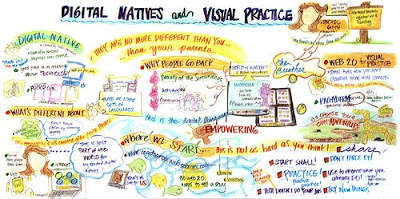Learn English


- Studying Made Easier With Varsity Learning Tools
The recently launched Varsity Learning Tools is a massive and completely free EdTech resource full of options to help students learn and provide teachers with convenient classroom assessment solutions. The resource offers a comprehensive suite of free...
- Top Ten For Education. Number 1 Is For Wikis.
Today, surfing on the net I have found a very interesting article in the 'Transforming Education through Technology' journal, called Top Ten Web 2.0 Tools for Young Learners written by Chris Riedel. My aim with this post is not making a list...
- English For Young Learners
Sometimes, teaching English for young learners is not very easy. It needs some methods in teaching English to ease young learners to understand what the main point of learning English. The most important one is nonconventional method. It means students...
- I'm Not A Dogmetician, I'm A Teacher
I wrote a post questioning dogme and what exactly it was some time ago now and revisited it recently. You can read the original here. Here are some current thoughts, which I think demonstrates my continuing state of 'being critical'. There...
- Interactive Whiteboard For Modern Classrooms
Gone are the days when children used to sit facing those ugly-looking blackboards polluting the classroom with chalk dust. With the change in time, the needs of the students have also changed. Now they need smarter ways to study which may hold their...
Learn English
WEB 2.0 TEACHERS?

Our students have changed radically. Today's students are no longer the people our educational system was designed to teach. Mark Prensky.
Many things have been written about how Web 2.0 tools can increase opportunities for learning in a cooperative way, improving critical thinking and communication between students, and between students and teachers.
Nowadays, competent teachers in the New Technologies usage are needed in Education in order to make a difference in the classroom. We should not forget that our students are ?digital natives?, therefore, as Carina Grisolia and Claudia Marisa Pagano says in their article ?WebQuests, Wikis y Blogs un trío que se las trae!? ??chalk and blackboard are not enough for teaching? (la tiza y el pizarrón no son suficientes a la hora de dar clases). However, teachers have to rethink the learning process introducing new learning strategies and methods based in New Technologies to motivate our students.
Technology by itself doesn?t change and improve the way our students learn; we can have classrooms full of computers, with the most innovative programs, and go on with the methods we use in face-to-face classes, I mean, magisterial classes. Therefore, we need new pedagogical approaches in order to our students learn in a cooperative way, and this is just possible if teachers learn to think web 2.0 networks educatively. This means, as well, to change the teacher?s role.
The teacher is not an "encyclopedia" anymore, but the person who helps students to achieve their goals teaching them to work in a cooperative way (webquests, wikis, blogs?). Cooperative learning is just possible with WEB 2.0 tools. Web 2.0 has expanded the class boundaries to create social and educative networks on the net where teachers and students work together to create and share knowledge, whereas Web 1.0 was about passive viewing of content. Students love project works in which each one has a role, since they feel they have a responsability. They enjoy and learn doing things and strengthening bonds with their classmates and teachers!
If you are interested in this topic, you should read these articles and book:
CSCL, Theory and Practice of an Emerging Paradigm by Timothy Koschmann.
Cooperative Learning in Foreign Learning Teaching
Cooperative Learning from Journal of Vocational
and Technical Education

This lovely picture has been taken from Rachel Smith's presentation Digital Natives and Visual Practice at the 2007 IFVP Conference.
- Studying Made Easier With Varsity Learning Tools
The recently launched Varsity Learning Tools is a massive and completely free EdTech resource full of options to help students learn and provide teachers with convenient classroom assessment solutions. The resource offers a comprehensive suite of free...
- Top Ten For Education. Number 1 Is For Wikis.
Today, surfing on the net I have found a very interesting article in the 'Transforming Education through Technology' journal, called Top Ten Web 2.0 Tools for Young Learners written by Chris Riedel. My aim with this post is not making a list...
- English For Young Learners
Sometimes, teaching English for young learners is not very easy. It needs some methods in teaching English to ease young learners to understand what the main point of learning English. The most important one is nonconventional method. It means students...
- I'm Not A Dogmetician, I'm A Teacher
I wrote a post questioning dogme and what exactly it was some time ago now and revisited it recently. You can read the original here. Here are some current thoughts, which I think demonstrates my continuing state of 'being critical'. There...
- Interactive Whiteboard For Modern Classrooms
Gone are the days when children used to sit facing those ugly-looking blackboards polluting the classroom with chalk dust. With the change in time, the needs of the students have also changed. Now they need smarter ways to study which may hold their...
